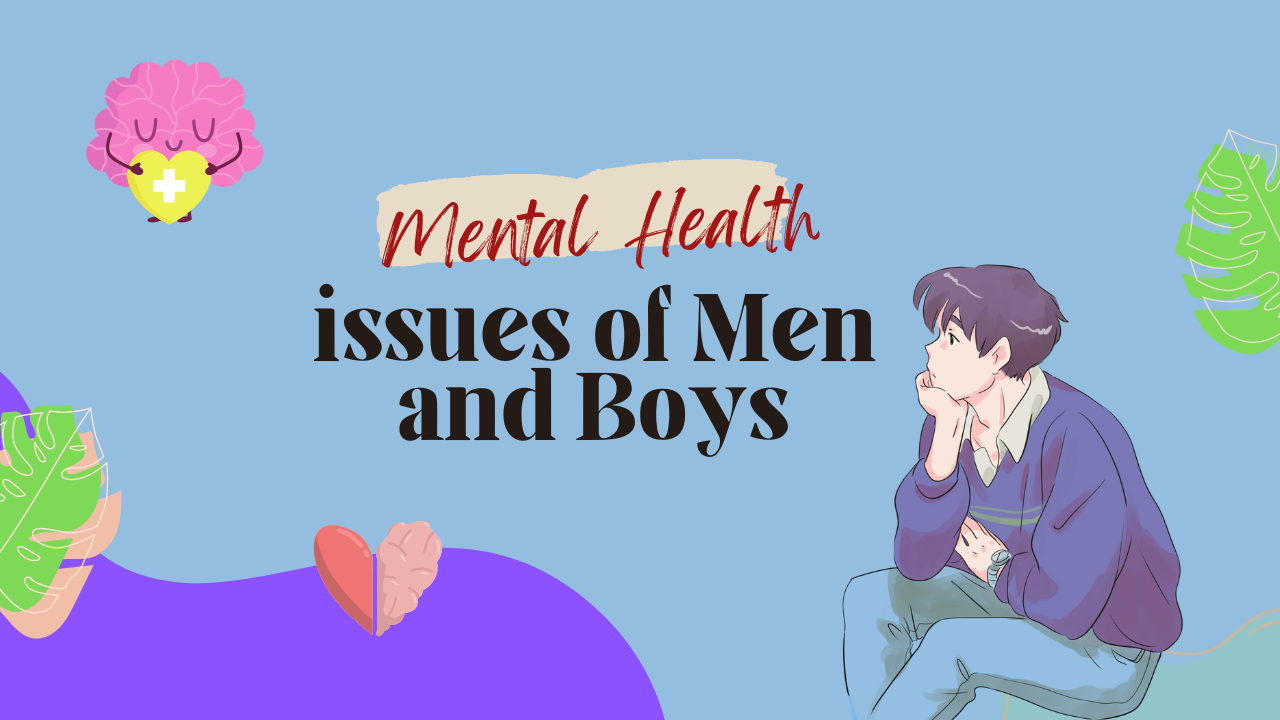
What are the issues specific to men and boys?
Our culture doesn’t always allow space for men to express their inner struggles. For men in particular, who’ve been told all their lives to “man up” and “be strong,” accessing mental health resources can seem to go against cultural expectations. The culture of hyper-masculinity makes it harder for boys to form relationships, and that leads to a crisis of connection. While boys desire connections with peers, they tend to distance themselves as they age, due to social stigmas. Generosity and compassion, in contrast, are seen as feminine characteristics and therefore present a threat to their socially constructed identities. These pressures, which begin when they are very young, deprive boys of the self-awareness and emotional vocabulary to recognize and process their feelings. Surveys show that men and boys everywhere find it difficult to talk about mental health, though they are significantly more at risk of attempting suicide than women. Self-medicating with alcohol and other substances is a common symptom of depression among men and this can exacerbate mental health problems and increase the risk of developing other diseases.
Behavioral changes during depression
Men with depression may notice the following behavioral changes:
- Drinking more or taking drugs.
- Avoiding family or social situations.
- Working obsessively without taking proper breaks.
- Finding it hard to keep up with work or family responsibilities.
- Becoming more controlling or abusive in relationships.
- Engaging in risk-taking behavior, such as gambling, unsafe sex or rash driving.
- Attempting suicide.
These behavioral changes occur as a result of men trying to mask depression and adhere to so-called “masculine norms.” Depression may affect a man’s sex drive too. They may have less interest in having sex and might have trouble with sexual performance.
Why depression is often undiagnosed in Men?
Men may be more likely to report physical symptoms, such as difficulty sleeping, than emotional changes because as a cultural norm they need not be ‘too emotional. As a result, the doctor might give them the wrong diagnosis. Also, people may misinterpret common emotional or behavioral signs of depression in men. They may see anger as a personality trait instead of a sign of depression.
Treatment
- There are many treatment options for depression:
- Talk therapy
- Medication
- Cognitive behavioral therapy (CBT)
- Men assume the idea of receiving support as “a mark of weakness”. This has to change. Asking for help is a necessary life skill in maintaining one aspect of their mental health.
Concerns among Boys with attainment of Puberty
Boys too have pubertal concerns and worries, but our cultural norms do not provide space for them to open up. Some of them are:
Voice Change
As their vocal cords grow, their voice may “crack” as they speak. While this can be embarrassing and annoying, it’s a normal part of the growth process.
Wet Dreams
Boys may wake up in the morning to find sticky, damp areas in their pajama pants and shorts. These “wet dreams,” or nocturnal emissions, are caused by an ejaculation, not urination, that occurs during sleep and are not an indication that the boy was having a sexual dream. Parents should explain these events to their son without blame, and reassure him they understand that he cannot prevent it from happening. Wet dreams are just part of growing up.
Involuntary Erections
During puberty, boys get erections spontaneously, without touching their penis and without having sexual thoughts. These unexpected erections can be quite embarrassing, especially if they occur in public—at school or a restaurant, for example. Let your son know that these unexpected erections can happen and are normal signs that his body is maturing. Explain that it happens to all boys during puberty and that over time it will become less frequent.
Breast Enlargement
Many boys experience swelling of the breasts during the early years of puberty. Most often, your son may feel a button-like bump under one or both nipples. His breasts may also feel tender or even painful, especially when hit. After a few months—sometimes longer—the swelling will disappear; let your son know that these lumps will rarely develop into true breasts.
One Testicle Lower than the Other
Uneven testicles, although they may seem to be embarrassing and develop anxiety about their body, are both normal and common.
Parents support to the sons during the age of 9-12 yrs (Preteens)
As your child approaches and enters puberty, be sensitive to his need for privacy. They often become more modest while they bathe, for example, or change their clothes. Respect their privacy, such as remembering to knock before entering their rooms. Preteens also become more sensitive about their looks. Their interest in grooming increases, and they are frequently concerned about their appearance. Watch for signs of a child who has a negative image of their bodies, which in some cases can result in eating disorders. Do not engage in even good-natured teasing of your child’s pubertal development changes. Most pre-teens will be easily embarrassed if they are teased about the changing shape of their bodies or their deepening voices. This can lead to anxiety and depression. If you find it difficult to communicate about the above-mentioned issues with your son, consider taking the help of a Mental Healthcare professional. Remember that asking for help is a sign of strength rather than weakness. it’s OK to ask for help, whether, for yourself, your loved ones, or anyone you think may need it.


